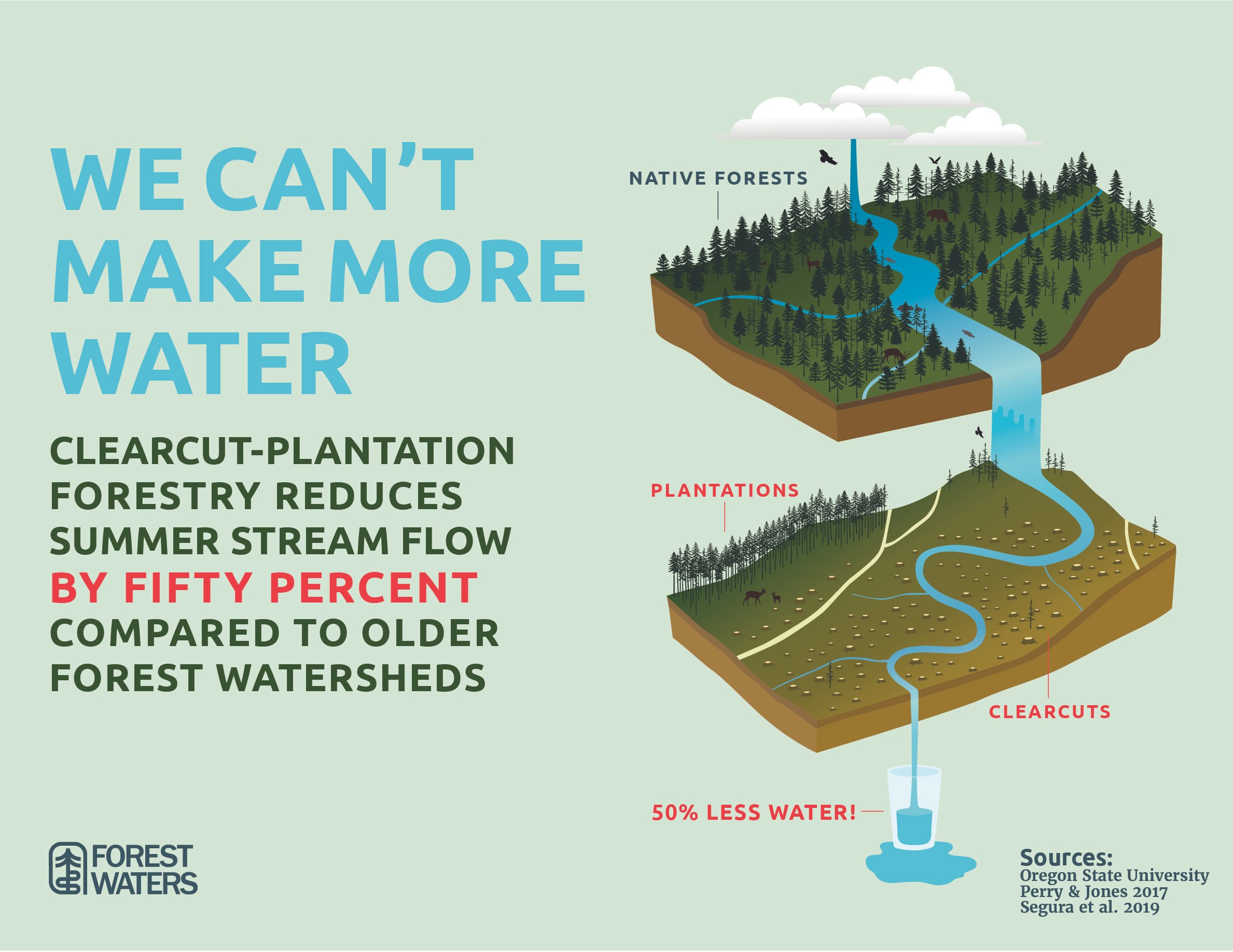Drinking Water – OPB, Oregon, Pro Publica
Industrial Forest Lands Reduce Stream Flow By 50% Compared To Native Forests. Source: University Of Oregon Perry & Jones 2017, Segura Et Al 2019.
At the end of 2020, a team of reporters from OPB, the Oregonian and Pro Publica released a deep dive into the impacts of clearcutting on Oregon’s drinking water systems, underscoring how Oregon’s weak laws cost local folks millions of dollars in additional treatment costs.
The team met with local water managers, mayors and residents in Corbett, Oceanside, Wheeler, Rockaway Beach and other small towns across Oregon and spent over a year poring over documents, researching the impacts and visiting the source waters.
Their report highlighted studies from Oregon State University that logging can cause long-lasting water shortages and pollute drinking water with herbicides and dirt. One study examining timber practices over a 60-year period found that water levels in streams surrounded by industrial timber plantations dropped by more than 50% compared with older forests. We can’t make more water, clearly something has to be done about these impacts.
“A timber company had clear-cut thousands of trees along the creek, leaving only a thin strip standing between the town’s drinking water and recently flattened land strewn with debris. A single row of trees was left on either side to protect it from mud, herbicides and summer sun. After many of those trees were bowled over by wind, the creek flow dropped so low that the town could no longer get water.”
